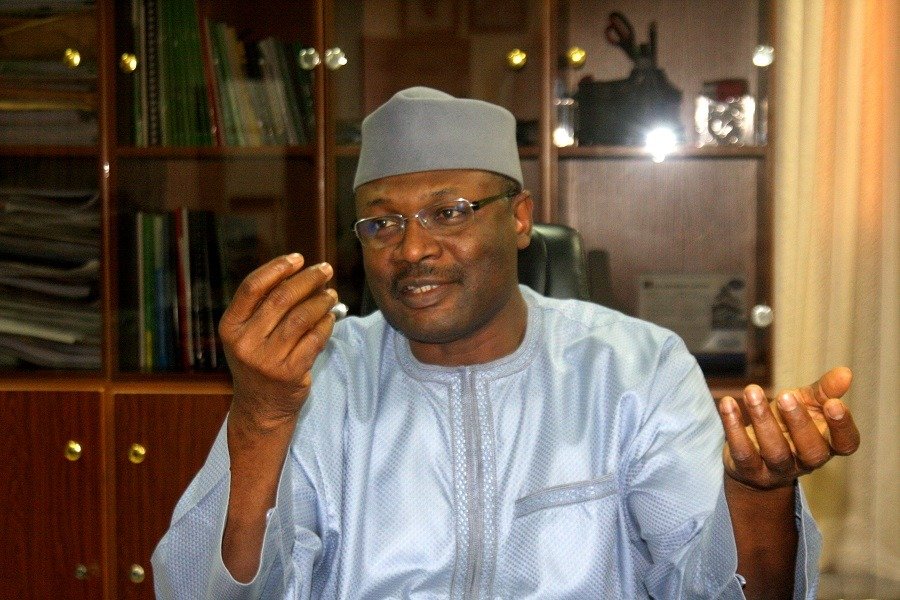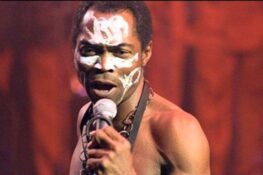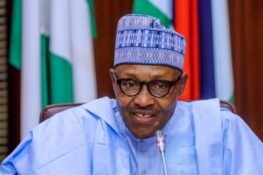Many Nigerians are seething with rage because the election did not go as expected.
On the day that I wrote this article, one of the trending videos on WhatsApp in Nigerian groups was that of a “Yoruba man” who tore up his Nigerian passport because the nation did not live up to his expectations about the 2023 elections.
But the election was not as horrible as partisans claim.
There are three reasons why it is logical that Nigeria has had a fairly good election.
First, powerful politicians lost in their strongholds, including the president, the president-elect, governors, senators and other legislators.
The kind of losses resulting from this election have never been seen in any Nigerian election since independence.
Secondly, the election exposed fraudulent voter registrations.
Just about 25 per cent of registered voters actually voted.
From 93.5 million registered voters, less than 24 million came out to vote.
In the past, the excess would have been allocated through rigging.
Thirdly, the political landscape has become more inclusive of other political parties.
A third and underestimated political party, the Labour Party, shook the electoral foundations, capturing victories far beyond tribal delineations.
In the senate, we now have seven parties represented, instead of three in 2019.
The election’s other import is that we are a fraudulent nation, in every state and every ethnicity.
Nigerians are not as many as we claim, going by the number of actual voters.
Forget about the claims of voter intimidation, no level of disturbance could have caused only 25% to vote.
It means that our voting system is as rigged upfront as the population census.
When verification became possible through BVAS, we found that Nigerians are not as many as we thought.
Lagos had just a total of 1.27 million voters, Kano had 1.7 million, Oyo delivered 0.8 million and Kaduna produced 1.36 million voters.
These are the largest states in Nigeria. They don’t have the population we assumed, thanks to this monumental election.
Looking at the numbers of both the national and state elections, I am convinced that many of the claims that politicians and their supporters keep making are just self-serving.
They admit victory in electoral locations where they won and reject the results in places they lost.
Don’t get me wrong – there were malpractices and we may yet have a different outcome from the legal system as these results have been contested. It is part of our democracy.
But taken as a whole, the outcome illustrates a ground-breaking election in which the numbers tell a story of improvement and less of rigging on a large scale as in the previous elections.
Politicians who insist on winning where they lost miss a point, sadly, because they are not willing to give up any of the seats they won.
They cannot condemn the process when they accept their own gains from the process.
They cannot be gleefully holding the INEC certificates of their candidates while condemning the ones given to others.
Looking at the numbers of both the national and state elections, I am convinced that many of the claims that politicians and their supporters keep making are just self-serving
My favourite philosopher is Immanuel Kant.
His The Critique of Pure Reason is his most important work.
It forms the bedrock of a number of teachings in the ethics of journalism.
As a trained and formerly practicing journalist, Kant’s philosophy has had the most profound impact on my professional principles and, to a large extent, my moral compass.
Kant reasoned that there is a route that is objective, uniform and an unconditional which individuals and societies must follow, against any contrary natural desires, as the only right way.
Kant uses a standard technique of Categorical Imperative to arrive at what is right – every step you take to get to the destination.
Unlike Publius Ovidius Naso, the “end justifies the means” philosopher, Kant taught us that the end must not just be right, every step taken to reach an endpoint must be right.
Why is this philosophy relevant? It helps us appreciate the idea of rightness. If the election was wrong or rigged somewhere or anywhere, then it was wrong and rigged everywhere and must be universally rejected.
No politician or activist, who thinks the election of 2023 was rigged must accept any victory from the same election.
Those who stress the weaknesses of the elections cannot define wrong-doing by what happens in other people’s backyard.
We know that there was no perfection in any backyard via news reports, but also know this was better than any other.
It is not a bad thing to aim for perfection in the electoral system, but how realistic are we? Elections are, often times, more imperfect than democracy because an election is just a page in the book of democracy. Politicians always try to take advantage of gaps in the system. All of them do.
This election has been as good as it gets.
What Nigeria now needs to do is to build further safeguards and guardrails to make it even better.
Former US President Jimmy Carter, whose nonprofit, the Carter Center, has monitored numerous elections, including in Nigeria from 1999, remarked that elections are rarely perfect but its results often mirror the reality.
President Carter said: “There will always be flaws. There often will be accusations of voter fraud by the losing party. But only rarely is there concrete, verifiable evidence of large-scale systematic manipulation of votes.”
I have witnessed seven presidential elections in the United States, out of which I have voted in five.
There was none more contentious than the 2020 election, when America was basically reduced to a Third World country.
US Republican politicians distributed food just like Nigerian politicians used the stomach infrastructure to convince voters.
Voter intimidation was at its height, as the white majority have historically attempted to disenfranchise minority voters.
Former President Donald Trump used all tactics in the book to gain undue advantage.
His administration carted away US postal service mailboxes from American neighborhoods, as Covid-19 imposed a new way of voting – postal.
Gerrymandering, manipulation of electoral districts, reduction of voting logistics in black neighborhoods and all sorts of fraudulent techniques were employed. Trump still lost the election.
After losing, Trump filed 62 lawsuits and failed in all. He tried to argue that his victory was valid where he won but false where he lost, even when he lost the popular votes by several millions.
In 2000, when former Vice President Al Gore lost to former President George W Bush by just 537 votes in a nation of over 300 million citizens, he went to court, accepted a controversial verdict and quit politics.
Democratic culture, once planted, must be nurtured. The eagerness to blow up the system by partisans is a road to perdition. When an election is over, people should not keep being sore.
I was of age during the June 12, 1993 election crisis in Nigeria and played a role in that history as a journalist.
My newspaper, along with others, were closed for 14 months. Many of today’s politicians were also of age.
Most of them are beneficiaries of the work others did, but did nothing for the sake of democracy. If things blow up, they will easily “japa.”
Sadly, we have a generation of young men and women who have not learned the lessons of history. I have a book recommendation for them.
It is, “Violence and Politics in Nigeria: The Tiv and Yoruba Experience,” by Professor Remi Anifowose.
Even in this election, there have been a few examples of principled politicians worth mentioning for their pursuance of the greatest ideals of democracy through actions which prove that they are truly in it for the right reasons
The young need the perspective of history to know that the events of today are not new. Rigging and allegations of it, political thuggery, ethnicization and religion are veritable tools in the hands of politicians that have been employed through Nigeria’s political development.
The younger generation must know that they have made progress and must continue the fight in order to achieve even more, instead of destroying the gains that started from #EndSARS.
Some so-called leaders of #EndSARS are just fortune seekers, who incubate under politicians in order to make a buck.
A few of them were in newspaper stories winning their polling booths in the election. They plant stories in the media to show their relevance to political principals, and they are no different from the ones they want to upstage.
Those with sound judgement must look at the big picture, which includes learning lessons, taking what worked and making it better.
Even in this election, there have been a few examples of principled politicians worth mentioning for their pursuance of the greatest ideals of democracy through actions which prove that they are truly in it for the right reasons.
Among them are the APC governorship candidate of Oyo State, Senator Teslim Folarin, and the PDP deputy-governorship candidate in Lagos State, Ms. Funke Akindele.
Senator Folarin of Oyo State, stated in his concession post: “It is God that gives power and takes power! May Oyo state and our people continue to prosper. In conclusion, in line with the official pronouncement of the Independent National Electoral Commission (INEC), I hereby congratulate Engr. Seyi Makinde.”
In the same manner and spirit, Ms. Akindele, wrote: “The elections might not have panned out in the way we hoped, but it was an honourable run for us. We fought a good fight indeed as a matter of fact. I also want to encourage all who mean well for the Nation and the state of Lagos not to give up. I understand that some of us are beginning to develop some sort of apathy towards the system, however, if we do not speak, we would never be heard. I’m glad that we could at least speak up.”
Nigeria must move forward. Since 1999, we have never had one election that we all accepted.
The system has been improved and can be further improved. Imperfect elections happen all the time and in most democracies.
It does not have to be the end of the world. All we need to do is keep demanding and refining.
The ethnic and religious strife that is engulfing the nation in the aftermath of the election is dangerous.
The hatred flowing from it must be halted, at least to allow the courts to decide who won.
What I have been reading among Nigerians on WhatsApp groups alluding to the genocide in Rwanda as a Nigerian probability need to stop. Those who are at daggers drawn must get wise.
A replay of Rwanda will be catastrophic for Nigeria. What will be beneficial is to keep perfecting democracy.








